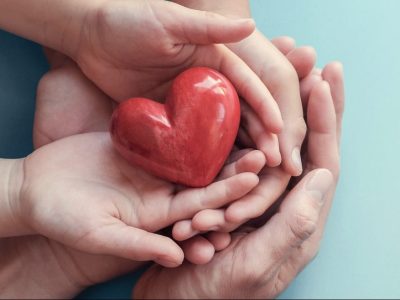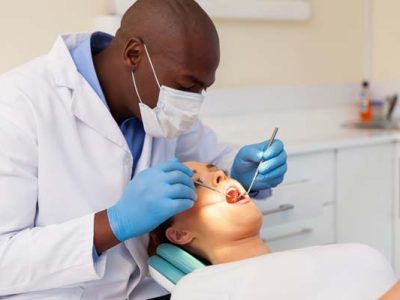Personal development and goal setting are integral components of a fulfilling life, particularly in the realms of health and wellness. The journey towards personal growth is often marked by the setting and achieving of meaningful goals. These objectives serve as beacons, guiding us through the complexities of everyday life and leading us toward our best selves.
The Importance of Setting Personal Goals
Goal setting is not just about creating a roadmap for success; it’s about understanding oneself better. When we set goals, especially in health and wellness, we commit to a journey of self-improvement. These goals, whether they involve losing weight, gaining muscle, improving mental health, or simply leading a healthier lifestyle, become reflections of our deeper desires and values.
Strategies for Achieving Personal Goals
Achieving personal goals requires more than just wishful thinking; it demands a strategic approach. Here are some key strategies:
- Specificity and Clarity: Goals should be specific and clear. Instead of a vague aim like “get healthier,” a more specific goal would be “run a 5K in three months” or “meditate for 10 minutes daily.”
- Measurable Milestones: Break down large goals into smaller, measurable milestones. This makes the goal less daunting and provides a way to track progress.
- Realistic Planning: While ambition is important, unrealistic goals can lead to disappointment. It’s vital to set goals that are challenging yet achievable.
- Consistent Effort: Consistency is key. Regular effort, even in small doses, can lead to significant long-term results.
- Flexibility and Adaptability: Be prepared to adapt your goals as circumstances change. Flexibility allows you to stay committed to your overall objective, even if the path there shifts.
The Role of Health and Wellness in Personal Development
Health and wellness are foundational to personal development. A healthy body and mind can dramatically improve the quality of life and facilitate the achievement of other goals. Physical fitness, for example, boosts energy levels, improves mood, and increases resilience, all of which are crucial for tackling various life challenges.
Nutrition and Exercise: Pillars of Wellness
A balanced diet and regular exercise are the twin pillars of wellness. Nutritious food provides the energy and nutrients needed to function optimally, while exercise keeps the body strong and the mind sharp. However, maintaining a balanced diet and a consistent exercise regimen can be challenging, especially in the fast-paced modern world.
Supplements and Health Products: Supporting Wellness Goals
This is where supplements and health products can play a supportive role. While they are not magic solutions, quality supplements can help fill nutritional gaps, boost energy levels, and enhance overall well-being, thereby supporting personal development and wellness goals. For instance, protein supplements can aid muscle recovery after workouts, and vitamins can ensure you’re getting the necessary nutrients for your body to function properly.
In the context of health and wellness, an experience with Le-Vel’s range of products can be illustrative. Le-Vel offers a variety of health and wellness supplements that align with different personal goals. Their products are designed to support various aspects of health, from physical fitness to mental clarity, providing an additional layer of support in one’s personal development journey.
The Role of Personal Reflection and Self-Assessment
Personal reflection and self-assessment are critical in the realm of personal development. Regularly taking the time to reflect on one’s progress, reassess goals, and acknowledge achievements helps maintain a clear focus and direction. This practice also fosters self-awareness, allowing individuals to understand their strengths, identify areas for improvement, and adjust their strategies accordingly. Reflection can be facilitated through journaling, meditation, or even through discussions within supportive communities. This introspective process ensures that personal development remains a dynamic and responsive journey, tailored to the evolving needs and aspirations of the individual.
The Psychological Aspect of Personal Development
Personal development is not just a physical journey; it’s a mental and emotional one as well. Mental health is equally important, and goals related to stress management, emotional well-being, and mental clarity should not be overlooked. Practices like meditation, mindfulness, and cognitive-behavioral strategies can be instrumental in achieving mental and emotional balance.
The Importance of Community and Support
Achieving personal goals can be challenging, and having a supportive community can make a significant difference. Engaging with like-minded individuals who share similar goals can provide motivation, accountability, and valuable advice. Communities, whether online or in-person, create an environment of mutual support and encouragement.
Lifelong Learning and Adaptation
Personal development is a continuous process of learning and adaptation. It involves not only setting and achieving goals but also reassessing and redefining them as you grow and change. This dynamic process ensures that your goals always align with your evolving values and circumstances.
Conclusion
In conclusion, personal development and goal setting are vital for a fulfilling life, particularly in health and wellness. By setting specific, measurable, and realistic goals, and employing strategies like nutritional supplements, exercise, and mental health practices, individuals can embark on a journey of self-improvement and personal growth. Companies support this journey by providing products that complement and enhance these efforts. Remember, personal development is a lifelong journey, not a destination, and each step forward is a step towards a healthier, happier you.








Comments